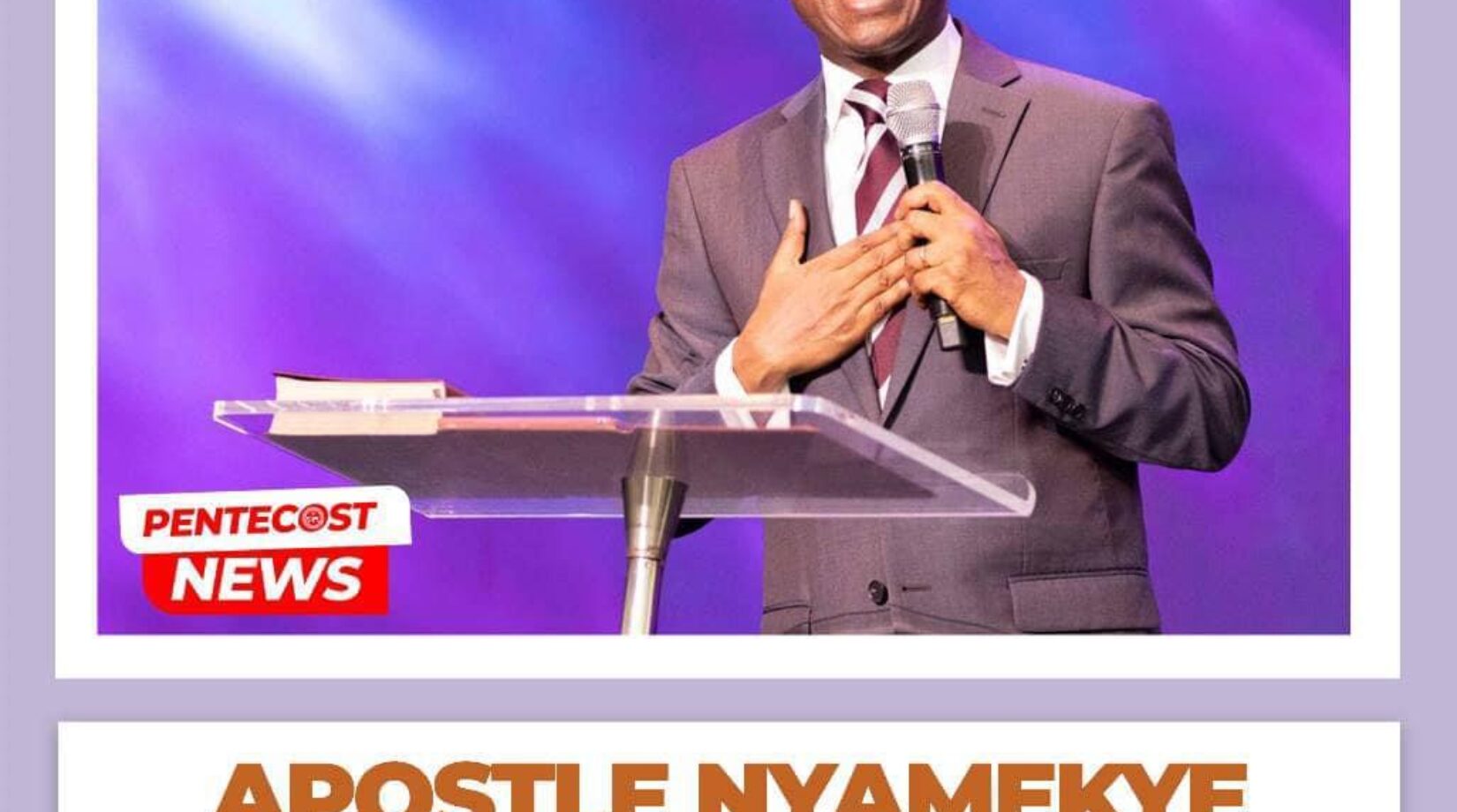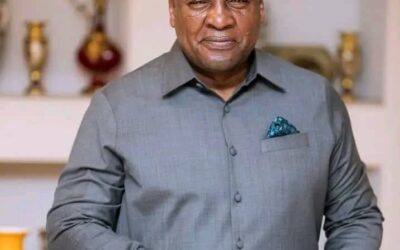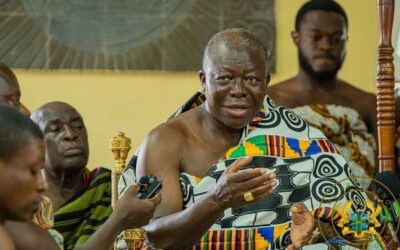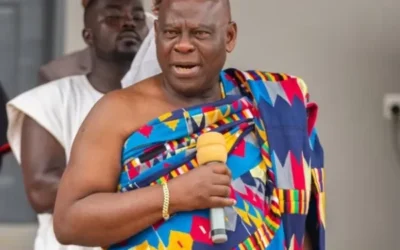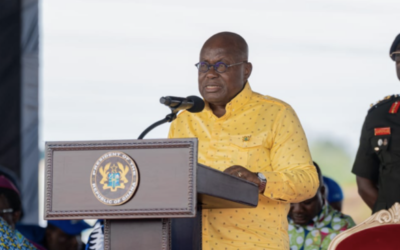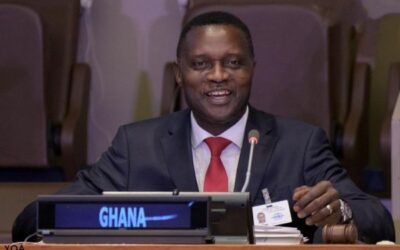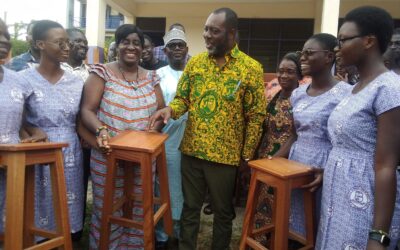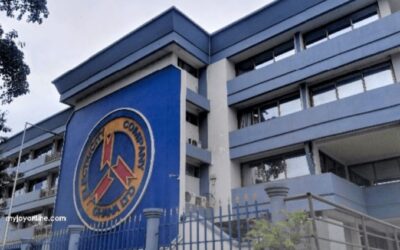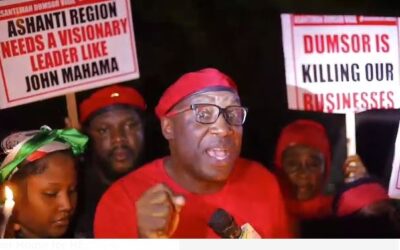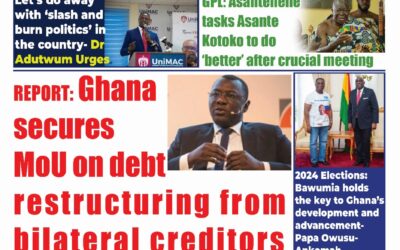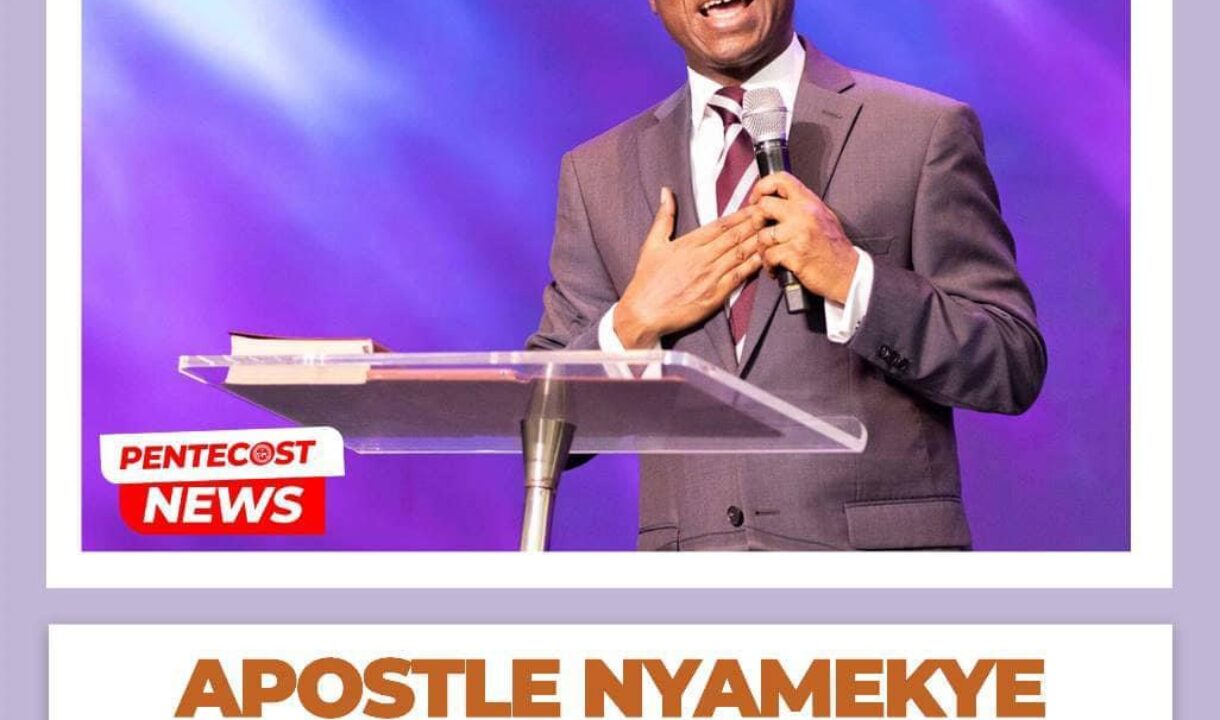The Ghana Pentecostal and Charismatic Council (GPCC) has called on President Nana Addo Dankwa Akufo-Addo to immediately downsize his government machinery and cut down on expenditure to build confidence in his commitment to solving the country’s economic problems.
The call by the GPCC follows similar calls by the opposition National Democratic Congress and several civil society organisations who have advised the government to downsize its government to save cost.
According to the GPCC downsizing the government and cutting down on expenditure will demonstrate to Ghanaians that the call for burden sharing is not just all talk but also backed by action.
In a communiqué, the GPCC also called on the government and other stakeholders, to collaboratively establish a national dialogue forum for regular consultations and engagements on pertinent matters of national interest;
“Urgently downsize government machinery and cut down on expenditure to start building confidence about its commitment in solving our economic problems. From the Council’s perspective, it is important that the Government demonstrates a strong sense of burden-sharing to encourage key bondholders to fully accept the exchange voluntarily.
“This should include Government explicitly and verifiably cutting down on its expenditure, including reducing the size of the government, among other areas. This is very critical to encourage buy-in from the general public.”
The GPCC also called on the government to ensure that the Domestic Debt Exchange does not destroy the financial sector.
“Whatever form the DDEP takes, Government should ensure that the financial sector, which is a key pillar of growth for the economy, is not destroyed in the process of the debt exchange. The Council acknowledges the setting up of the financial sector stability fund, as a measure to provide support to the financial sector, but the Council expects to see a clear demonstration that the facility is fully funded for implementation, in order to provide full assurance to the financial sector and the banking community.”
Find details of the communique below:
COMMUNIQUÉ RELEASED BY THE GHANA PENTECOSTAL AND CHARISMATIC COUNCIL (GPCC) ON SOME CURRENT NATIONAL ISSUES
- PREAMBLE
The Ghana Pentecostal and Charismatic Council (GPCC) has held its 2023 Conference of Heads of Churches and Organizations (CHCO), and the Extra-Ordinary National Delegates Conference at the Pentecost Convention Center (PCC) from the 31st January – 2nd February 2023.
The Conference, among other things, deliberated on pertinent issues prevailing in, and of concern to the nation Ghana and Ghanaians.
As a Council, we are very concerned about recent economic developments in Ghana and the hardship that is currently impacting all Ghanaians, especially the poor and vulnerable groups.
In particular, the very high levels of inflation and currency depreciation are impacting the poor the most, wiping away incomes and wealth and pushing most Ghanaians into extreme poverty and hardship without any clear social safety nets. This is presenting an almost existential threat to the poor and vulnerable.
The GPCC acknowledges that globally, economies are in turmoil and facing various degrees of socio-economic challenges.
The Council particularly recognizes and appreciates the efforts of the Government to contain the situation in Ghana.
These recognisable efforts include the recent staff-level agreement (SLA) reached with the International Monetary Fund (IMF) in December 2022.
We urge the Government to do everything possible to ensure the IMF programme goes to the Board to help rescue the situation and reset the economy.
However, the Domestic Debt Exchange Programme (DDEP), worsening macro-economic indicators and its effect on the livelihood of the citizens, the Auditor-General’s 2021 Report which brought to the fore considerable degrees of financial misappropriations, in public sector institutions are among some of the issues which engaged the attention of the Conference.
This communique directed at the Ghana Government, the Church in Ghana and the entire citizenry is part of the key outcomes of the Conference.
- KEY OBSERVATIONS;
(A) DOMESTIC DEBT EXCHANGE PROGRAMME (DDEP)
- The Government of Ghana has targeted the restructuring of domestic debts amounting to GHS137.3 billion in order to access an IMF bail-out programme. This is an attempt to restore Ghana’s credibility on the international financial markets and with the investor community.
- The Government of Ghana appears not forthcoming with demands to downsize its administrative machinery and to cut down on expenditure as a means of reducing budget deficits and making financial gains to address her indebtedness. It is generally expected that such a move on the part of the government will engender confidence in the citizenry relating to efforts at mitigating the unsustainable debt situation;
- On the expiration of the 31st January 2023 deadline, the government is now making a coupon rate offer of 10% with a 5 years maturation date for bondholders who are 59 years and below; and 15% with up to 5 years maturation for bondholders who are retirees. The new offer by Government is also intended to reduce losses to bondholders;
- The Government of Ghana has so far announced agreements with institutional bondholders including banking financial institutions and insurance companies after four deadline extensions, with the most recent being an extension from 31st January 2023 to 7th February 2023. It is evident that Government is having difficulty in reaching the industry benchmark (75% – 80%) of a qualifying majority.
- The Bank of Ghana has established financial stability support fund of ¢ 15 billion to support financial institutions participating in the debt exchange programme as an incentive to improve financial stability.
- Public confidence in the financial sector (especially Banking and Insurance) of the economy is being very adversely affected. People appear to be losing confidence in the financial sector and in public investment. Measures will have to be put in place to cushion the effect of the domestic debt restructuring on banking sector institutions and to restore confidence in the sector;
- While the Domestic Debt Exchange Programme is a precondition for getting the IMF programme, it is clear that the DDEP is facing serious challenges and has resulted in a number of extensions of deadlines. Time is of the essence in these matters, since the delayed approval of the IMF Programme for Ghana by the IMF Board continues to worsen Ghana’s financial position and international credit rating. Time is of the essence in these matters since failure to expedite the DDEP might delay the approval of the Programme for Ghana by the IMF Board. This might further exacerbate Ghana’s economic challenges.
(B) 2021 AUDITOR-GENERAL’S REPORT
- A total of ¢17.4 billion in financial irregularities have been flagged by the Auditor-General in its latest report submitted to Parliament for the 2021 financial year. The stated amount represents a 36% rise in irregularities compared to that of 2020;
- The Auditor-General has disclosed that government agencies misappropriated or misapplied ¢10billion of monies mobilised for Covid-19 activities on government budget support;
- A number of MMDAs and State-Owned-Enterprises (SOEs) have issues to answer in terms of accounting for monies spent and efficiency in the use of public funds;
- Some of these infractions could have been avoided if the appropriate authorities had enforced existing financial control mechanisms.
(C) GENERAL ECONOMIC SITUATION AND LIVELIHOODS
- The rather high inflation rate (54% as of December 2022) affects purchasing power and makes the cost of living high for the average Ghanaian.
- Frequent increases in utility tariffs in the recent past are negatively affecting all sectors and levels of businesses and the socioeconomic livelihoods of the citizens;
- Youth unemployment is increasing to worrying and unacceptable levels;
(D) ENVIRONMENTAL DEGRADATION
- There is poor management and proliferation of plastic waste and this has a negative effect on the environment;
- There is wanton destruction of forests and vegetation cover for illegal mining (galamsey) activities and for charcoal;
- The pollution of water bodies and destruction of aquatic life which is essential for the livelihood of adjoining communities, by galamsey and related activities;
(E) LEADERSHIP AND POLITICAL GOVERNANCE
- Political leadership and governance, according to the 1992 Constitution (Article 35 (7) requires succeeding governments to as far as practicable continue and execute projects and programmes commenced by their predecessors.
- The discontinuance of projects by succeeding governments has over the years been a drain on the national economy and a bane on our political governance.
- Overly partisan national decision-making processes at the expense of our collective national interest is undermining the unity and cohesion of the nation.
- COMMITMENTS AND REMEDIES
(A) GPCC COMMITS TO SUPPORT IN ADDRESSING THESE ISSUES BY:
- Availing our platforms to support consultative initiatives aimed at addressing the prevailing national problems, to engender consensus building, unity and peace;
- Increasing admonition to Reverend Ministers of the Gospel to live modestly and above reproach.
- Intensify teachings to our members especially those in public service to show the way by imbibing the principles of integrity in the fight against corruption, being mindful of the fact that righteousness exalts a nation but sin is a reproach to any people.
- Collaborating with other ecumenical bodies to facilitate a national stakeholder forum that brings to the table professionals and distinguished business practitioners, academia, politicians and other civil society bodies to dispassionately discuss and proffer alternative perspectives and solutions to the current challenges confronting our nation;
- With the consent of the government and other stakeholders, collaboratively establish a national dialogue forum for regular consultations and engagements on pertinent matters of national interest;
- Mobilizing the Church and the nation in prayer to seek God’s guidance and help in our governance and development efforts.
(B) GPCC REQUESTS GOVERNMENT TO:
- Expedite action on the domestic debt exchange program as is being pursued with the individual bondholders and pension fund managers.
- Continue with the present productive engagements for a more amicable arrangement with respect to the DDEP.
- Urgently downsize government machinery and cut down on expenditure to start building confidence about its commitment in solving our economic problems. From the Council’s perspective, it is important that the Government demonstrates a strong sense of burden-sharing to encourage key bondholders to fully accept the exchange voluntarily. This should include Government explicitly and verifiably cutting down on its expenditure, including reducing the size of the government, among other areas. This is very critical to encourage buy-in from the general public.
- Whatever form the DDEP takes, Government should ensure that the financial sector, which is a key pillar of growth for the economy, is not destroyed in the process of the debt exchange. The Council acknowledges the setting up of the financial sector stability fund, as a measure to provide support to the financial sector, but the Council expects to see a clear demonstration that the facility is fully funded for implementation, in order to provide full assurance to the financial sector and the banking community.
- The Council is concerned that key vulnerable groups (pensioners and individual small savers, among others), are not being adequately protected in this debt exchange. The Council will encourage the government to ensure the financial sector, which has been restructured more recently, and vulnerable groups are fully protected in the design of the debt exchange in order to limit the burden on such groups.
- Work with the relevant law enforcement agencies to retrieve all Covid-19 funds that the Auditor General’s 2021 Report cited as being unaccounted for or misapplied.
- Collaborate with other stakeholders and support calls to organize a non-partisan national consultative forum to dispassionately discuss and gather ideas for addressing the prevailing socio-economic and environmental challenges;
- Review all major Government flagship programmes in the light of the current financial challenges as a means of contributing to resolving the difficulties the country is currently facing;
- The Auditor General should exercise its authority to disallow any item of expenditure which is contrary to law and to surcharge the disallowed expenditure on the person(s) responsible for incurring or authorizing it.
- Attorney General should take urgent steps to prosecute all persons against whom allegations of corruption and malfeasance have been made to serve as a deterrent to others.
4 CONCLUSION
It is the view of the GPCC 2023 Conference of Heads of Churches and Organizations (CHCO) that the economy of Ghana is presently in dire straits.
The government cannot approach the resolution of the current economic situation in a business-as-usual manner.
Every effort must be made to carry the citizens along in the decision-making process.
This will promote confidence in our governance architecture and ensure that every stakeholder commits to contributing to the solution.
Indeed, the role of government is to work for the interest of the citizenry and the State.
Policies of governments should promote the good of the citizenry rather than merely for the political party of the government.
Governments should not make the national interest subordinate to the interest of a political party.
May God bless our homeland Ghana; and make our nation great and strong!!!
Signed
Apostle Eric Nyamekye
PRESIDENT
Source:Citinewsroom.com

